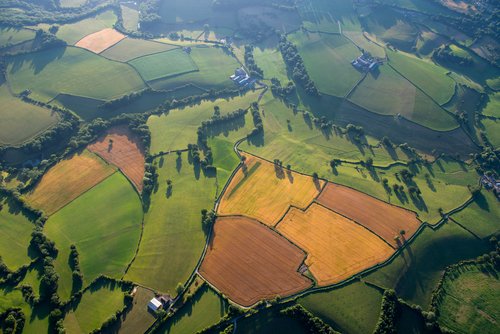Inheritance battle: A 16-acre field, a ‘lost’ Will and another farming family at loggerheads in the High Court
The bitter divide between three sisters and their mother and brother has been laid bare in the High Court amid allegations of child labour on the family dairy farm, harsh living conditions and being hit across the legs with a cow stick.
Judge Deputy Master Rhys condemned the sisters' claims as 'grossly exaggerated' and in some cases 'untrue'. He said that not only had the 16-acre field they claim should have been theirs was never promised to them but that they'd never relied on inheriting it either.
Describing it as 'an unfortunate family dispute', he said: "All three Defendants are intelligent, hardworking and successful women with families of their own. They clearly have no actual need for the 16 Acre Field or for the money that it might realise if sold. It is troubling, to say the least, to find that important passages in their evidence are, essentially, not true."
How did this farming family inheritance battle come to court?
The initial claim was issued by Jo Dawson, the widow of farmer William Dawson who died in 1994, and their son, Philip Dawson They sought an order that a copy of William's original Will, which had been lost, be entered into probate.
The three sisters - Ann Dawson, Victoria Murdoch and Elizabeth Dawson-Hill - argued this copy was not valid and that the original Will had been intentionally revoked by their father.
They also issued what's known as a proprietary estoppel counterclaim alleging that a 16-acre field - part of the farm's 800-acre estate - had always been promised to them by their late father.
All three sisters used the identical paragraph about working on the farm from the age of five or six-years-old in their witness statements.
"It was part of our lives that we would be getting the 16 Acre and that we were expected to help on the Farm. We knew that we would be punished if we did not do what we were told. Punishments handed out by mother included scolding, withholding food at mealtime and thrashing with a piece of alkathene hose pipe (a cow-stick) across the back of our legs. That was life. That was the way it was from an early age, but the older I grew the more I understood that there was a connection between the two things—the work and the assurances about the 16 Acre."
What exactly is proprietary estoppel?
Proprietary estoppel can be used to stop someone reneging on a promise or assurance, however informally made, when that assurance was relied upon by the other person to their detriment.
It hinges on being able to prove the person bringing the claim had reasonable grounds for believing they would one day inherit property or land. As a result of relying on this assurance, they were left at a disadvantage.
What did the High Court decide in this inheritance dispute?
The judge found that there was no doubt that the copy of the Will - which had been provided by the firm whose solicitor drafted and attested the Will - was a genuine copy of the validly executed Will made by William Dawson five years before his death.
He also dismissed the proprietary estoppel counterclaim. He said the unpaid tasks carried out by the sisters on the family farm, as children and in subsequent years, were not because they were promised the 16-acre field but because they wanted to help their father, didn't dare say no to their mother and because they relied on their parents for bed and board at the time.
He also found that the sisters had not given up life opportunities because they'd relied on inheriting the land.
Deputy Master Rhys commented on the sad and sometimes cruel nature of the accounts given by the three sisters, particularly about their mother which he said characterised her as 'cruel, unloving and abusive'.
"None of this evidence is directly relevant either to the claim or to the Counterclaim," he said. "However, the fact that they considered it necessary to include such evidence - which must inevitably be deeply hurtful to their elderly mother - might provide some sort of explanation for the exaggerated and, in some cases, untrue evidence which they have given."
Get in touch
The number of people disputing a loved one's Will is rising fast and farming family disputes are no exception, although the majority tend to be settled out of court.
If you would like to contest or defend a Will, the help of a specialist lawyer is vital as every case needs to be looked at on an individual basis. Time limits also apply.
For help and advice, please contact Wards Solicitors' Contentious Trusts and Probate Team.
Our lawyers are members of the Association of Contentious Trusts and Probate Specialists (ACTAPS), the Society of Trust and Estate Practitioners (STEP), Solicitors for the Elderly (SFE) and the Law Society's Probate Panel. All demand a high level of expertise and up to date knowledge from their members.
Wards Solicitors' team is praised by the Legal 500 Guide for 2022 for its broad contentious trusts and probate practice with a particular emphasis on Inheritance Act and Court of Protection matters.
Head of the team, Elizabeth Fry, is highlighted as a key lawyer specialising in high value ad multi-jurisdictional matters.


